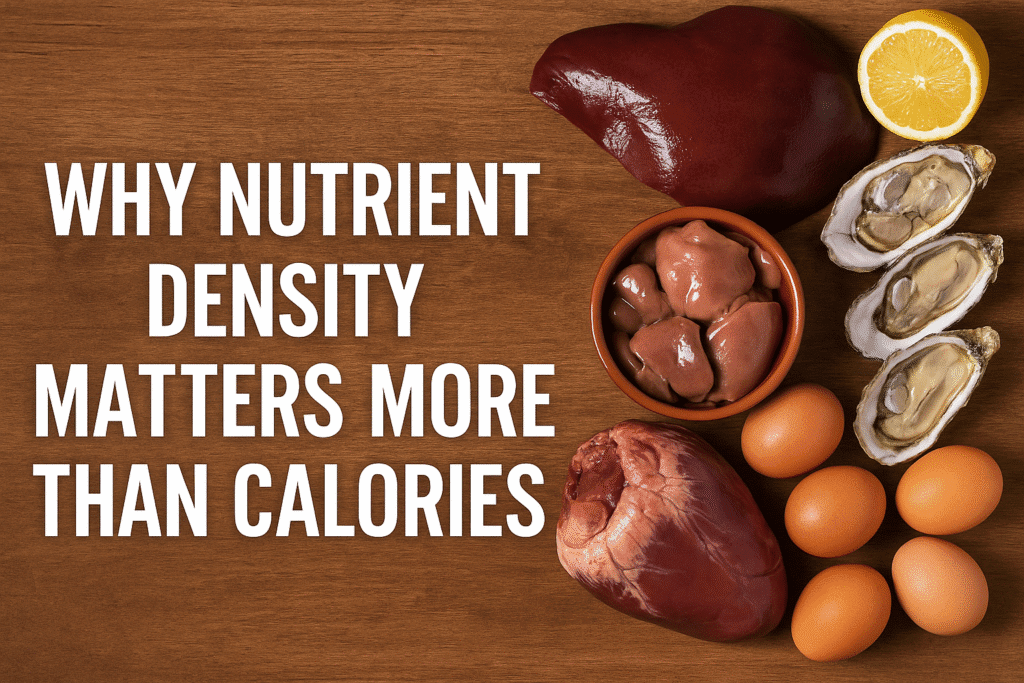If you’re still counting calories, no shame — we’ve all been programmed to do it. But here’s the deal: calories are just numbers. They tell you how much energy you’re eating, not whether that energy is doing jack for your hormones, your brain, or your mitochondria.
That’s where nutrient density comes in — and why it’s way more important than calories if you actually want to feel and perform like a human being, not a zombie on a blood sugar crash.

What Is Nutrient Density?
Let’s get clear: nutrient density means how much actual nutrition (think vitamins, minerals, amino acids, omega-3s, etc.) you’re getting per bite of food. So when someone asks, what is nutrient density?, this is it — it’s about quality, not quantity.
For example, 100 calories of beef liver gives you bioavailable vitamin A, B12, folate, iron, and copper. Meanwhile, 100 calories of “heart-healthy” cereal gives you sugar, glyphosate residue, and a sad little sprinkle of synthetic B6 that your body doesn’t even know what to do with.
Why Calories Don’t Mean You’re Nourished
Here’s the part most diets get totally wrong: You can be in a calorie deficit, hit your macros, and still be completely malnourished. You can eat 2,000 calories a day and still be nutrient-starved, inflamed, and low energy.
So no — it’s not just about eating less. It’s about eating foods that are rich in the things your body actually needs. That’s why nutrient density matters more than calories.
Nutrient-Dense Paleo Foods > “Low-Calorie” Health Foods
Let’s compare.
A few ounces of grass-fed liver gives you:
- Retinol (actual vitamin A your body uses)
- B12 and folate (mood, memory, fertility)
- Iron and copper (energy, immunity, hormones)
Meanwhile, a 90-calorie snack pack gives you:
- Refined seed oils
- Fortified “nutrients”
- And a blood sugar spike that’ll tank your focus in an hour
When you’re eating nutrient-dense Paleo foods like organ meats, oysters, egg yolks, and bone broth, you’re getting real food that fuels your brain and builds your body.
What to Actually Eat for Nutrient Density
You don’t need a calorie tracker. You need the best foods for energy and brain health — the stuff our ancestors ate because it kept them alive, strong, and sharp.
Eat foods like:
- Liver (I say it every time for a reason)
- Oysters and shellfish
- Egg yolks (not just the whites, ever)
- Sardines (bones, brain, organs — all in one)
- Bone marrow and broth
All of these are packed with nutrients that most people are missing. They’re better than any multivitamin — and your body recognizes them because they come from real food.
Final Thought: Stop Fueling, Start Nourishing
If you’re eating low-calorie, high-volume meals and wondering why your skin sucks, your brain’s foggy, and you’re constantly hungry — maybe it’s not your willpower. Maybe your body’s starving for actual nutrients.
This is what the ancestral health approach gets right. It’s not about restriction. It’s about giving your body what it needs to thrive — not just survive.
Stop counting calories. Start eating like a human again. Go for nutrient density. The results speak for themselves.
Sources:
- Cordain, Loren. The Paleo Diet: Lose Weight and Get Healthy by Eating the Foods You Were Designed to Eat. Wiley, 2010. https://thepaleodiet.com
2. Gropper, Sareen S., and Jack L. Smith. Advanced Nutrition and Human Metabolism. 7th ed., Cengage Learning, 2021.
https://www.cengage.com/c/advanced-nutrition-and-human-metabolism-7e-gropper
3. Mente, Andrew, et al. “A Systematic Review of the Evidence Supporting a Causal Link Between Dietary Factors and Coronary Heart Disease.” Archives of Internal Medicine, vol. 169, no. 7, 2009, pp. 659–669.
https://jamanetwork.com/journals/jamainternalmedicine/fullarticle/415197
4. Saladino, Paul. The Carnivore Code: Unlocking the Secrets to Optimal Health by Returning to Our Ancestral Diet. Houghton Mifflin, 2020.
https://carnivoremd.com/the-carnivore-code/
5. “FoodData Central.” U.S. Department of Agriculture, https://fdc.nal.usda.gov
6. “Nutrient-Dense Foods.” Weston A. Price Foundation, https://www.westonaprice.org/health-topics/abcs-of-nutrition/nutrient-dense-foods

Leave a Reply